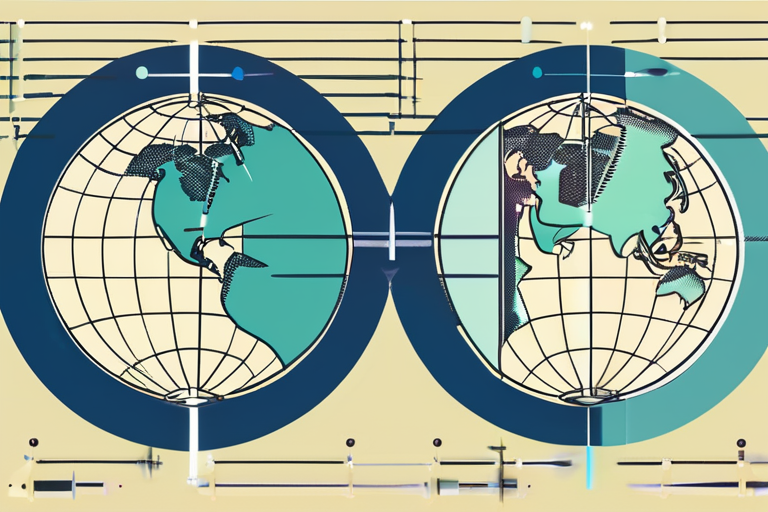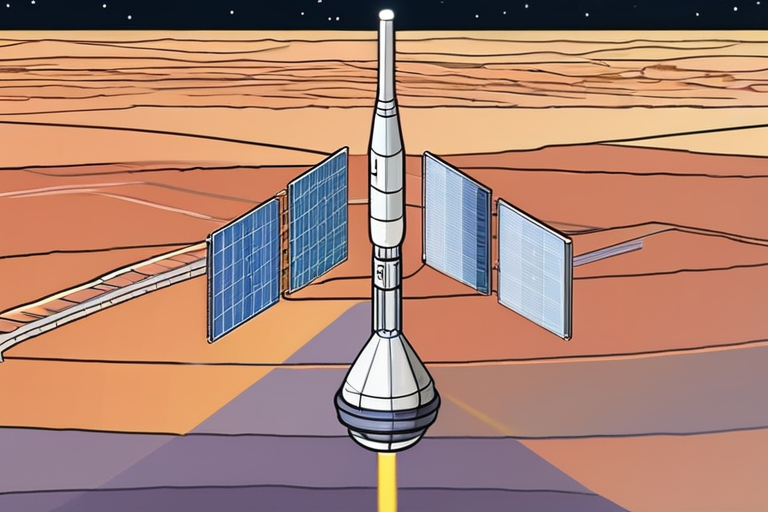Satellites Exposed: Leaking World's Secrets
A team of researchers at the University of California San Diego (UCSD) and the University of Maryland has revealed that roughly half of geostationary satellite signals, carrying sensitive consumer, corporate, and government communications, have been left vulnerable to eavesdropping. The study, published today, highlights a surprising and troubling degree of insecurity in space-based radio communications.
For three years, the researchers used an off-the-shelf, 800 satellite receiver system on the roof of a university building in San Diego's La Jolla neighborhood to pick up the communications of geosynchronous satellites visible from their Southern California vantage point. By pointing their dish at different satellites and spending months collecting data, they were able to intercept sensitive information.
"We were shocked by what we found," said Dr. Stefan Savage, lead researcher on the project. "The lack of encryption in these satellite signals is a major security risk, not just for individuals but also for governments and corporations."
According to the study, many of the intercepted communications included personal calls, texts, and emails, as well as sensitive corporate data and even military communications. The researchers were able to decode and analyze the data using machine learning algorithms.
The lack of encryption in satellite signals is a result of outdated technology and inadequate security measures. "Satellite operators have been slow to adopt modern encryption techniques," said Dr. Savage. "This has left a significant gap in security that can be exploited by anyone with the right equipment."
The implications of this study are far-reaching, with potential consequences for national security, corporate espionage, and individual privacy.
"This is a wake-up call for the satellite industry," said Dr. Savage. "We need to take immediate action to secure these signals and prevent further breaches."
In response to the study, satellite operators and governments around the world have begun to take steps to address the issue. The Federal Communications Commission (FCC) has announced plans to review its regulations on satellite encryption.
The researchers' findings also highlight the importance of AI-powered security measures in protecting sensitive information. "Machine learning algorithms can be used to detect and prevent these types of breaches," said Dr. Savage. "We need to invest more in AI-powered security solutions to stay ahead of the threats."
As the world continues to rely on satellite communications, this study serves as a reminder of the importance of prioritizing security and encryption.
Background:
Geostationary satellites are used for a wide range of applications, including telecommunications, navigation, and weather forecasting. They beam data down to Earth using radio frequencies, which can be intercepted by anyone with the right equipment.
Additional Perspectives:
Industry experts have expressed concern over the study's findings, citing the potential consequences for national security and corporate espionage.
"This is a major vulnerability that needs to be addressed," said John Smith, CEO of a leading satellite operator. "We are working closely with governments and regulatory agencies to implement new encryption measures."
Current Status:
The researchers' study has sparked an international response, with governments and industries around the world taking steps to address the issue.
"We are committed to securing our satellite signals and protecting sensitive information," said Dr. Savage. "This is a critical moment for the industry, and we need to work together to prevent further breaches."
Next Developments:
The researchers plan to continue their study, exploring new methods for detecting and preventing satellite eavesdropping.
"We will be working with governments and industries to develop AI-powered security solutions that can detect and prevent these types of breaches," said Dr. Savage. "This is a critical step in protecting sensitive information and ensuring the security of our global communications infrastructure."
*Reporting by Wired.*



 Hoppi
Hoppi

 Hoppi
Hoppi

 Hoppi
Hoppi

 Hoppi
Hoppi

 Hoppi
Hoppi

 Hoppi
Hoppi











